EASY MOSQUITO LARVA TRAP
By the end of the summer, my legs are dotted with scars from the mosquito bites that I’ve furiously scratched. Yeah, it’s not my best look. Plus mosquitoes can carry diseases. I know I should cover up more or apply a personal insect repellent; I just get lazy.
While I’m careful not to leave standing water anywhere on my property, I can’t strong-arm my lackadaisical next-door neighbors to do the same—or remedy the standing water in the creek that borders my backyard. Hence, mosquitoes.
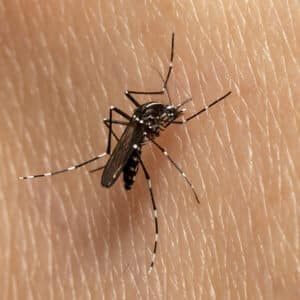
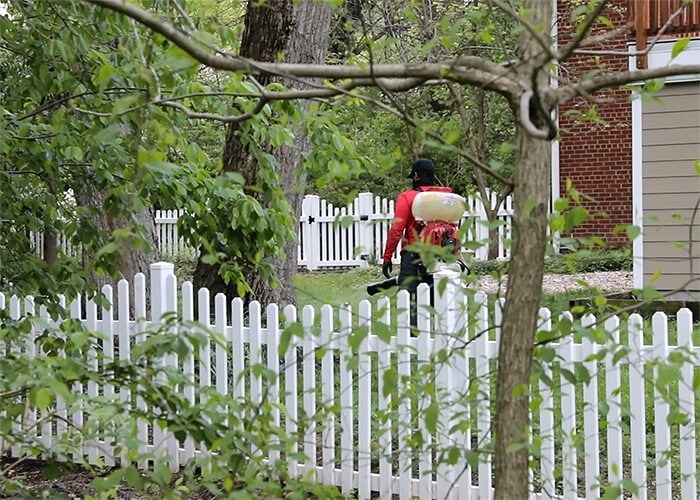
into my airspace where many beneficial invertebrates live.
Do. Not. Spray. (Please?)
A few nearby residents looking for “mosquito control” hire pesticide companies to fog their yards. This spraying is known to be a futile, harmful and money-wasting endeavor. It’s also stressful for those of us nurturing wildlife gardens.
There are two critical points we all need to digest: 1) spraying is ineffective against controlling adult mosquitos and 2) spraying pyrethroid-based insecticides is harmful to all flying, hopping and crawling arthropods that come into contact with the product. Lightning bugs, moths, caterpillars, beetles, bees, butterflies, spiders… whether you find them repulsive or delightful, they are all at risk. Organically derived sprays can be just as lethal. If it kills mosquitoes, it does not discriminate.
The same is true for those bug-zappers. Two studies showed that only about 4 – 6% of the insects they electrocuted were mosquitoes while many other charred victims were beneficial. I only mention these devices because it’s been estimated that 1.75 million zappers are purchased annually in the United States. (Seriously, who’s buying these? I’d love to see the demographics.)
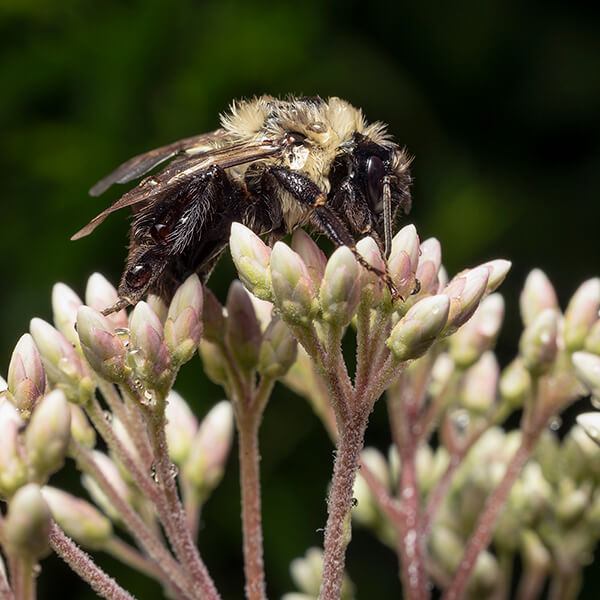
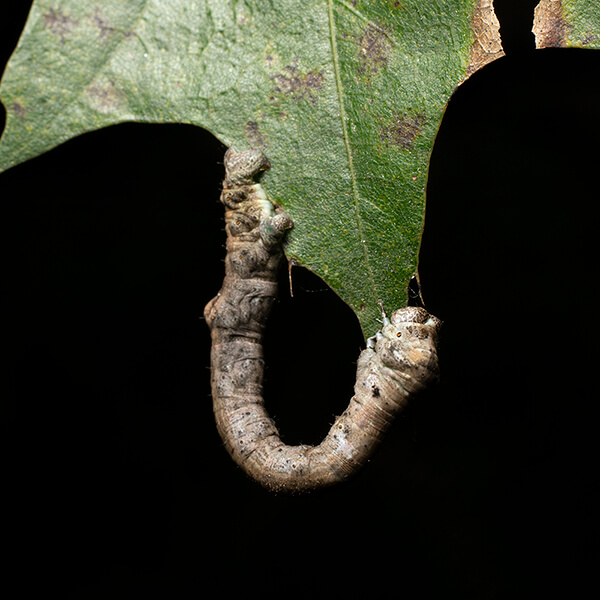
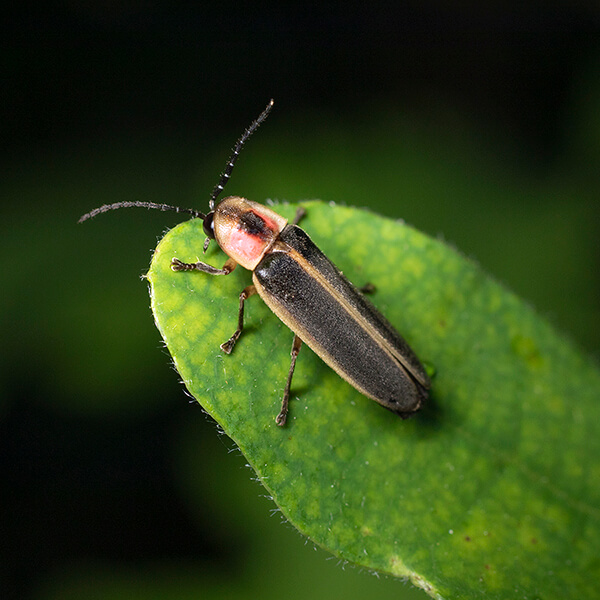
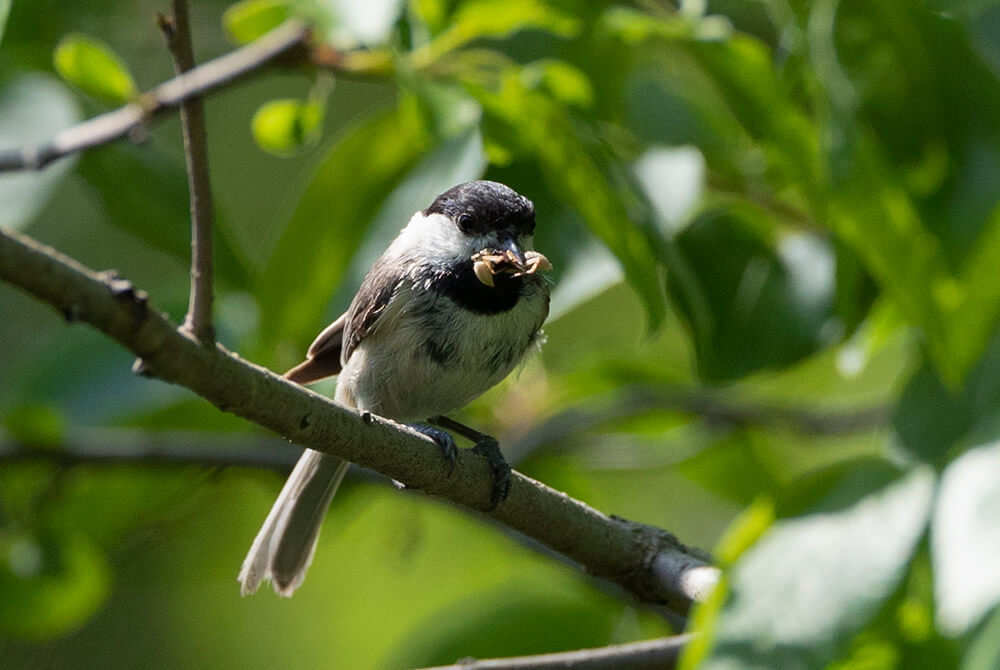
Carolina chickadee parents feed a bazillion spiders to their hungry young.
Let Nature Do the Heavy Lifting
Should we even wage war on mosquitoes? If you rarely get bitten, then probably not. But if you do possess more mosquitoes than you can tolerate, it’s smarter to combat them without chemicals. Indisputably, the most effective mosquito controls are their natural predators. Nature itself is a mighty equalizer.
We habitat gardeners regularly enjoy a delirious amount of animal species that other olde-timey yard caretakers do not. For us, mosquito predators abound! These predators can be vertebrates and invertebrates: fascinating creatures such as hummingbirds, toads, salamanders, dragon- and damselflies as well as other insects and spiders (ahhh, here they are again).
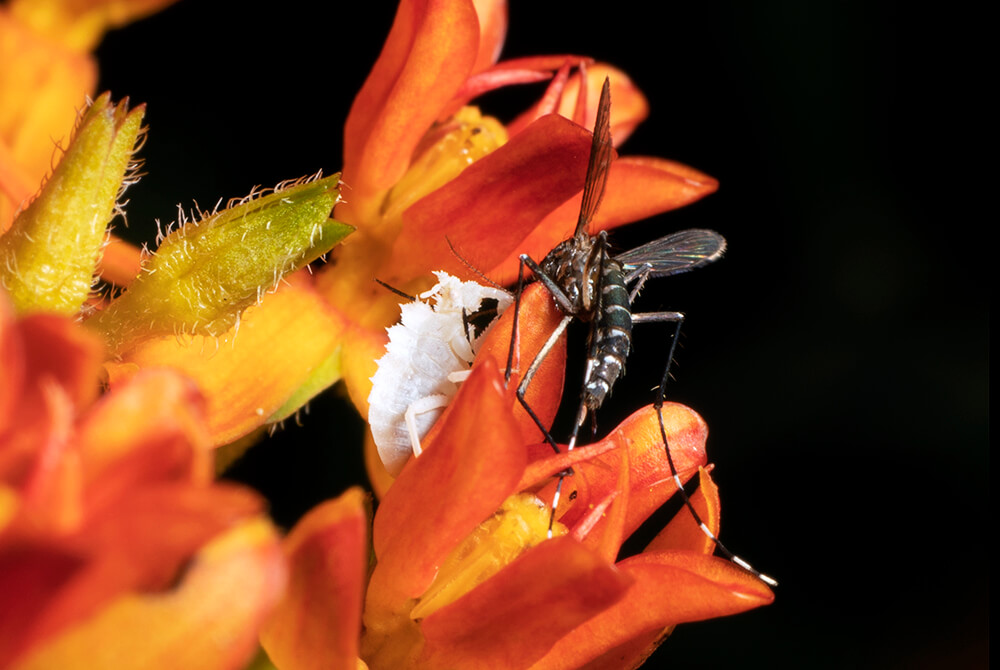
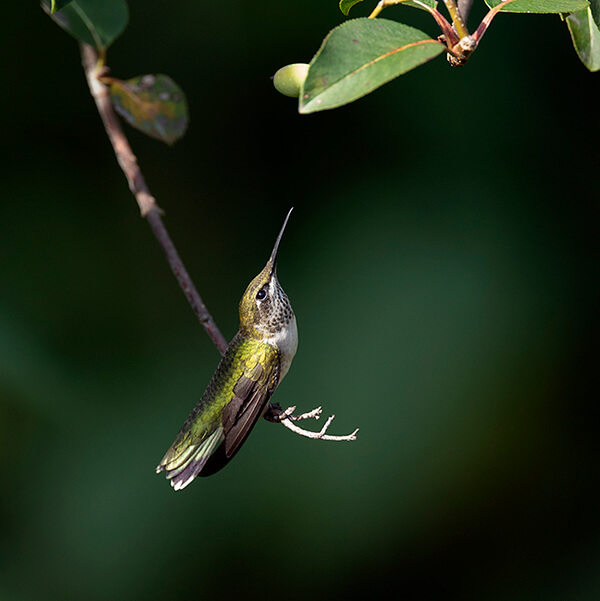

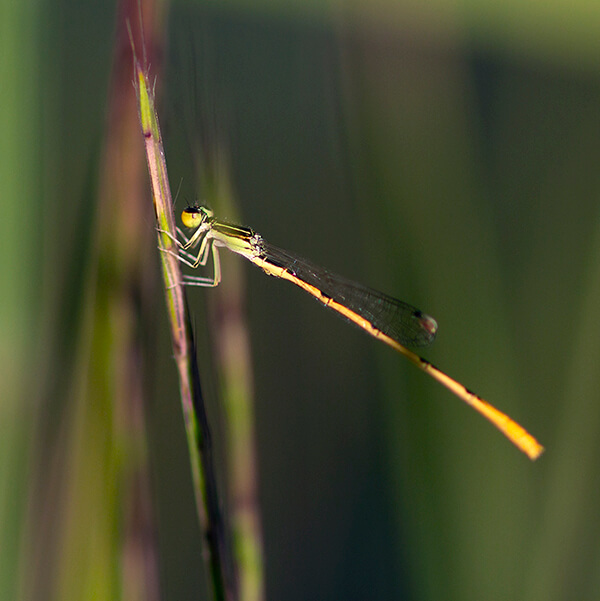
Keep Your Enemies Closer
Because I can’t stop mosquitos from breeding in every pocket of standing water in my immediate vicinity, what I aim to do is limit their numbers near my house. Anecdotally, my easy bucket-and-weed system appears to be effective and I’ve seen fewer mosquitoes since its implementation many years ago. It’s essentially a no-cost option that’s simple to construct. And it meets the objective of interrupting the mosquitoes’ lifecycle without harming other animals.
The trap, which I conveniently place near the backyard water spigot, lures in the egg-laying mosquitoes and prevents them from procreating in nearby unattended standing water. The American Mosquito Control Association writes, “Mosquito species preferring to breed around the house, like the Asian Tiger Mosquito, have limited flight ranges of about 300 feet.” That means I have a good chance of “trapping” some of these invasive pests.
Fun Facts?: In the United States, there are 176 species of mosquitoes. “Most of the mosquito vectors responsible for transmitting diseases are invasive species.” — Wilke et al.
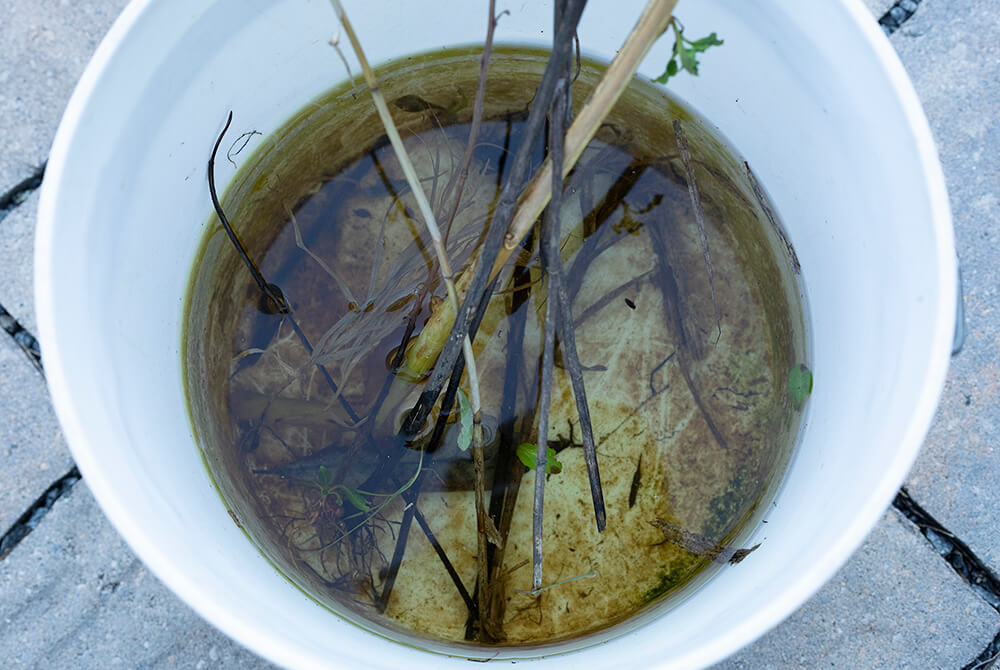
Easy Instructions
I usually put the trap out when I see my first mosquito (which is typically May in Northern Virginia).
Here’s the recipe:
- 1 small bucket or container (purportedly the Asian Tiger mosquito is attracted to the color black).
- Add some roots, stalks and leaves of weedy herbaceous plants, including some dried foliage. (Straw is highly recommended but it’s not a material that’s usually handy.)
- Add about 4 inches of tap or collected rain water.
Place bucket trap in a shady area and commence monitoring:
- In a few days, any chemicals (if you use tap water) should evaporate and the water will begin to stagnate from the rotting organic material. Look closely for any egg rafts that appear on the surface. It may be many days before eggs are laid.
- After eggs appear, tap the bucket every couple of days to see if any larvae have hatched. The “wigglers” will swim to the bottom of the container.
- Wigglers signal that it’s time to change the water!
- Empty and flush out the inside of the bucket and all the foliage if you plan to reuse the rotting stems (reuse; that’s what I do). I rinse everything thoroughly because I’ve had some wigglers stick to the plant material. You can also add or replace the weedy foliage and dried leaves.
- Continue this routine throughout the summer.
If you’d rather be slightly more hands-off then you can peek into the trap weekly. Don’t forget, though! You don’t want to inadvertently make more bitey mosquitoes. However, daily monitoring is super fun! For me, anyway.
If you’re not going to be home for an extended period, just bring the emptied bucket inside.
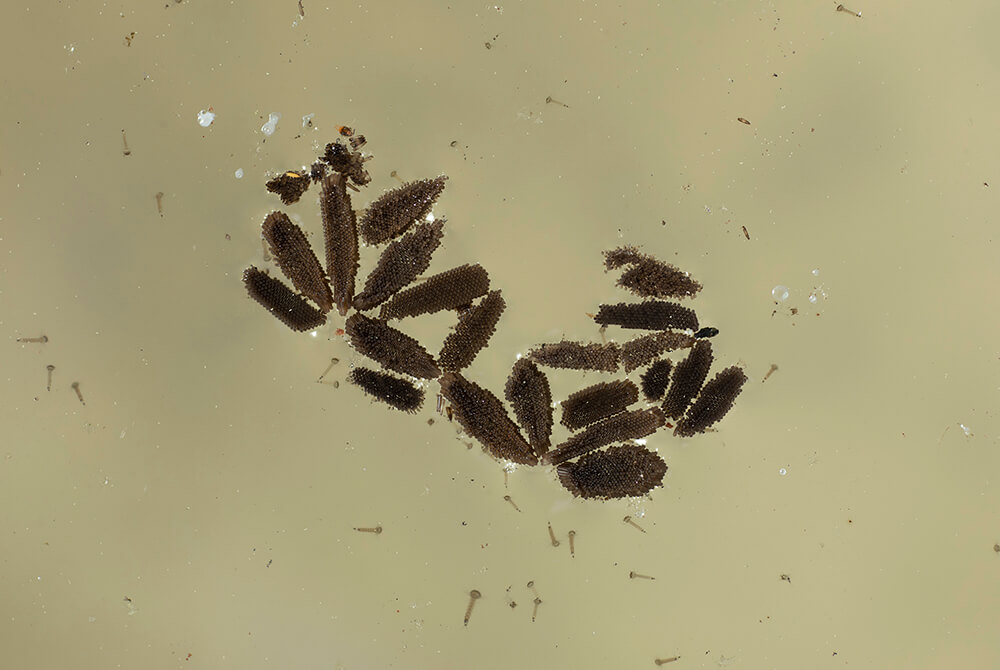
What About Mosquito Dunks?
There’s no need to spend money on dunks (larvicides) for this trapping method because you have full control of monitoring and changing the water once the eggs hatch (or even earlier, when they’re laid).
Aaron Anderson, Pesticide Program Specialist for The Xerces Society for Invertebrate Conservation, when asked about the dunks, said that as a precaution, Xerces doesn’t recommend them. He explained that although they aren’t “concerned about halting” the use of Bti (Bacillus thuringiensis israelensis) dunks, they don’t actively promote adding dunks to these traps either. Bt dunks could impact a wider group of flies beyond just mosquitoes (which includes critters like crane flies, midges, and shore flies).
“We don’t know what other impacts Bt dunks—including their other ingredients—have on insects or even the soil biota when the water is dumped out on the soil,” he added. The inert ingredients of the Summit brand, for instance, comprise nearly 90% of the dunk.
“Since mosquitoes generally take 8-10 days to reproduce,” Anderson advised, “if you just dump and refill your bucket weekly you’ll kill all the mosquito larvae in them, without needing to use a Bt dunk.”
To dunk or not to dunk? In spots that are hard to reach or that contain standing water too difficult to remove, dunks may be necessary.
Perhaps this brilliant bucket-and-weed method isn’t for you if you rarely wander outside? I invite you to investigate other types of homemade mosquito traps. There are also traps that are available commercially.
Anything but spraying, yes?
Additional Resources:
UNC Charlotte Urban Institute: Try the ‘Bucket of Doom’ to Eliminate Mosquitoes Without Harmful Pesticides
Northeast Massachusetts Mosquito Control & Wetlands Management District: Mosquito Life Cycle
National Wildlife Federation: What You Need to Know Before Spraying for Mosquitoes
The Maryland Department of Agriculture: The Asian Tiger Mosquito in Maryland
National Wildlife Federation: Meet the Squad of Mosquito-Eating Species
The Guardian: The insect apocalypse: ‘Our world will grind to a halt without them’
Three Billion Birds: 7 Simple Actions To Help Birds
Updated June 5, 2025, with Aaron Anderson’s comments regarding Bt dunks.
